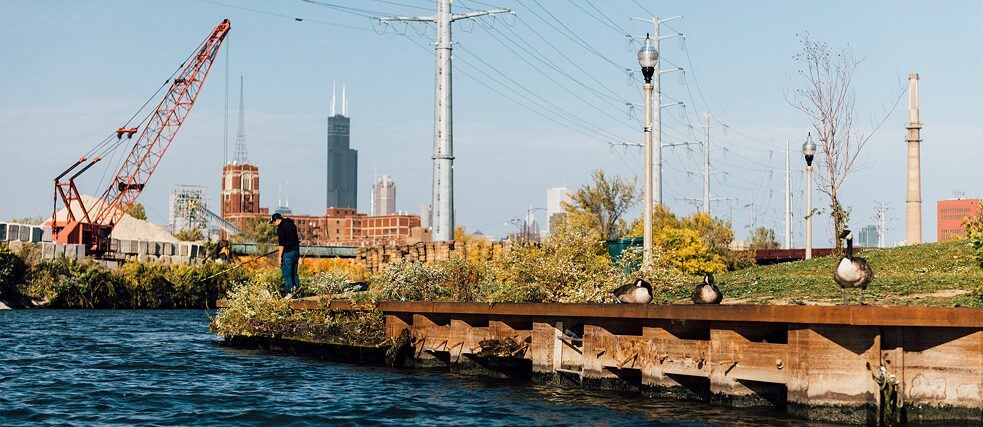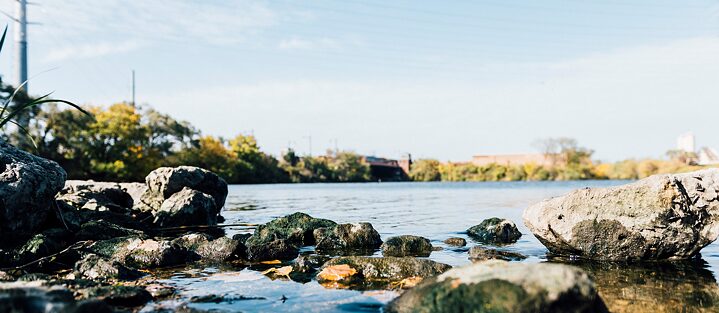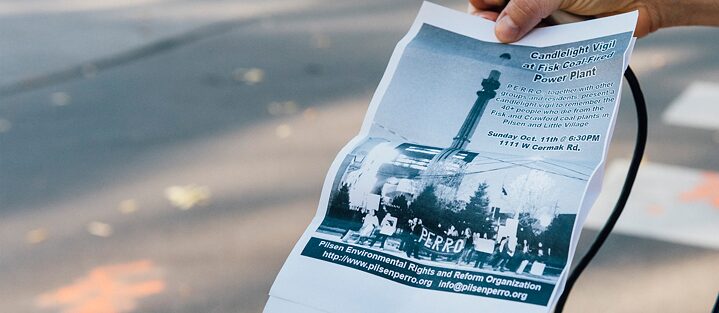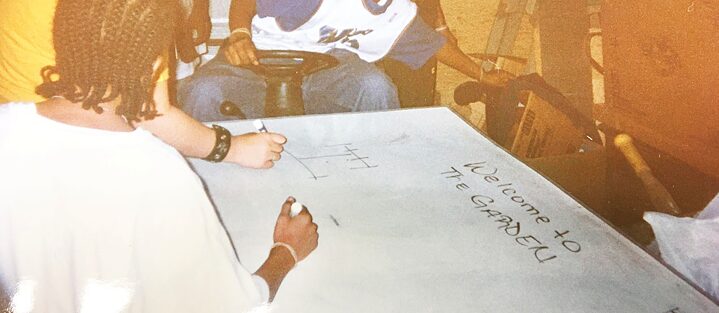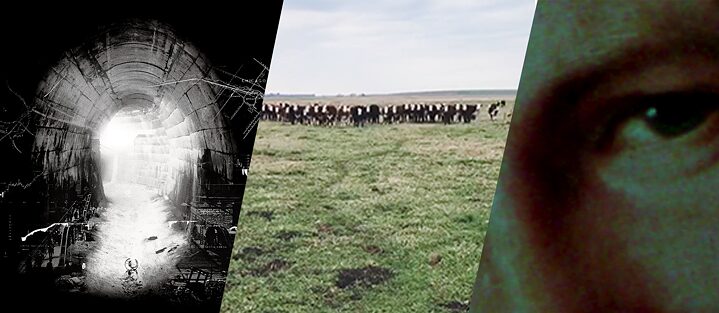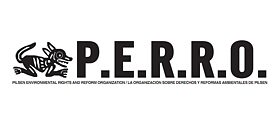About the Project
In the city of Chicago, notorious for its extensive redlining practices and the production of highly segregated neighborhoods, there is a 30-year gap in life expectancy between the Streeterville and Englewood neighborhoods, the largest in the nation. Poor public health statistics are also a measure in part of environmental injustices, when poorer and racialized neighborhoods are saddled with toxic emissions and contamination, lack of green space, heat islands, and overall disproportionate health hazards.
Grassroots organizers have responded to these abuses, and they have had many victories. In order to support their work, many organizations gave toxic and educational tours as a way to educate the public about these injustices and their campaigns. Now in the time of Covid and social distancing, when these tours have largely stopped, Chemical (Re)actions makes some of this information available remotely and invites artists, activists, designers and filmmakers to respond to these legacies and strategies as propositional methods for further inquiry on the limits and potentialities of the tactics proposed by these groups.
On December 14, 2020, Chemical (Re)actions will launch The Tactical Gardens, an open call for video essays to engage with the legacy of Hazel Johnson, the community of Altgeld Gardens and the work of People for Community Recovery. Programming will continue into 2021 with panel discussions, lectures, and virtual screenings in collaboration with selected artists, environmental rights organizations.
The project is a cooperative effort with People for Community Recovery, an original founder in the environmental justice movement in this country, the Pilsen Environmental Rights and Reform Organization, who have fought successful campaigns against lead pollution in the air, soil and water; and Friends of the Chicago River, who work to improve the health of 156-mile Chicago River system which includes the South Fork of the South Branch of the Chicago River, widely known as Bubbly Creek.
Project concept and coordination by Joshi Radin and Alberto Ortega Trejo.
